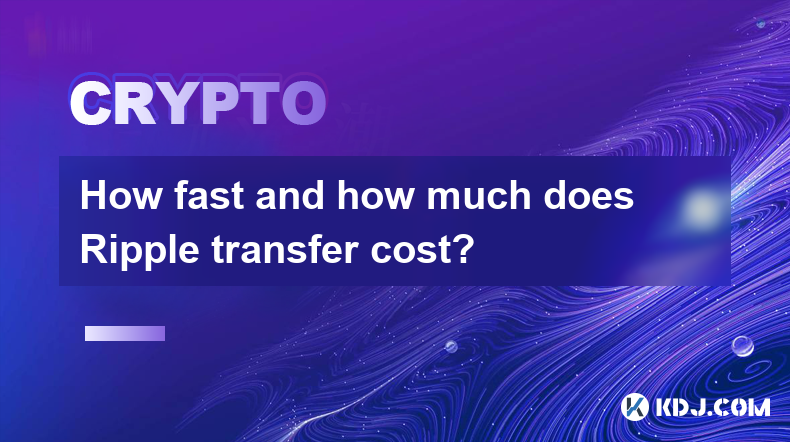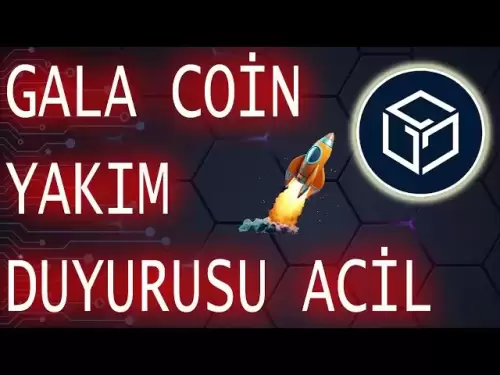-
 Bitcoin
Bitcoin $106,731.2224
-1.05% -
 Ethereum
Ethereum $2,444.9804
-1.20% -
 Tether USDt
Tether USDt $1.0003
0.01% -
 XRP
XRP $2.1882
0.09% -
 BNB
BNB $651.1435
-0.61% -
 Solana
Solana $148.3252
-2.09% -
 USDC
USDC $1.0000
0.01% -
 TRON
TRON $0.2787
0.55% -
 Dogecoin
Dogecoin $0.1598
-3.16% -
 Cardano
Cardano $0.5520
-2.43% -
 Hyperliquid
Hyperliquid $39.0960
-2.64% -
 Bitcoin Cash
Bitcoin Cash $516.9519
2.98% -
 Sui
Sui $2.7011
-2.95% -
 Chainlink
Chainlink $13.0582
-1.71% -
 UNUS SED LEO
UNUS SED LEO $8.9250
-2.53% -
 Stellar
Stellar $0.2359
-0.18% -
 Avalanche
Avalanche $17.3856
-3.73% -
 Toncoin
Toncoin $2.8095
-3.56% -
 Shiba Inu
Shiba Inu $0.0...01121
-1.95% -
 Litecoin
Litecoin $85.2795
-0.85% -
 Hedera
Hedera $0.1471
-2.15% -
 Monero
Monero $319.8004
1.12% -
 Dai
Dai $1.0001
0.01% -
 Ethena USDe
Ethena USDe $1.0001
0.02% -
 Bitget Token
Bitget Token $4.5344
-1.07% -
 Polkadot
Polkadot $3.3224
-2.96% -
 Uniswap
Uniswap $6.9697
-2.75% -
 Aave
Aave $266.1658
-2.25% -
 Pepe
Pepe $0.0...09414
-3.41% -
 Pi
Pi $0.4913
-3.29%
How fast and how much does Ripple transfer cost?
Ripple transfers are faster and cheaper than traditional banking, typically costing only a few cents, though speed varies due to network congestion and provider choices.
Mar 15, 2025 at 06:35 am

Key Points:
- Ripple transfer speeds vary greatly depending on network congestion and the chosen payment provider. Generally, transactions are much faster than traditional banking systems but slower than some other cryptocurrencies.
- The cost of a Ripple (XRP) transaction is relatively low compared to other cryptocurrencies, typically only a few cents. However, this can fluctuate depending on network conditions and the chosen exchange or service.
- Factors influencing transaction speed and cost include network congestion, transaction fees set by exchanges or payment providers, and the amount of XRP being transferred.
How Fast are Ripple Transfers?
Ripple's technology, known as the RippleNet, boasts significantly faster transaction speeds than traditional banking systems. While it aims for near-instantaneous transactions, the actual speed varies. Under ideal conditions, a Ripple transaction can be confirmed in a few seconds. However, during periods of high network activity, confirmation times can extend to several minutes. This contrasts with Bitcoin's confirmation times, which can take significantly longer. The speed is also influenced by the specific provider using the RippleNet; some services prioritize speed over cost, leading to quicker processing.
What Factors Influence Transaction Speed?
Several factors influence how quickly a Ripple transaction completes. Network congestion is a major player. When many transactions are being processed simultaneously, it takes longer for each individual transaction to be validated and added to the blockchain. The type of transaction also matters. Simple XRP transfers generally process faster than more complex transactions involving multiple parties or currencies. Finally, the exchange or payment provider you use plays a role, as their internal processes can add to the overall transaction time.
How Much Does a Ripple Transfer Cost?
The cost of sending Ripple (XRP) is generally low, often only a fraction of a dollar, typically only a few cents. This is significantly cheaper than many other cryptocurrencies and traditional wire transfers. However, the actual cost isn't fixed and varies based on several factors. The exchange or payment provider you use sets its own transaction fees, which can fluctuate based on network conditions and demand. The amount of XRP being transferred might also influence the fee, although this is less common than with other cryptocurrencies.
Understanding Transaction Fees:
Transaction fees are essentially small payments made to the network's validators to incentivize them to process your transaction. In Ripple's case, these fees are relatively small compared to those of Bitcoin or Ethereum. Exchanges and payment processors typically add their own fees on top of the network fee, so the total cost you pay will always be slightly higher than just the network's base fee. These additional fees can vary widely depending on the provider. It's crucial to check the fee structure of your chosen service before sending XRP.
Comparing Ripple Transfer Costs to Other Methods:
Compared to traditional banking systems, Ripple transfers offer a considerable cost advantage, especially for international transfers. Banks often charge high fees and lengthy processing times. Ripple's low fees and relatively fast processing make it a more attractive alternative for cross-border payments. Compared to other cryptocurrencies, Ripple also maintains a competitive edge in terms of cost. However, remember that transaction fees can still fluctuate, depending on network conditions. Always confirm the fee before initiating a transaction.
How to Minimize Ripple Transfer Costs:
While you can't completely eliminate transaction fees, you can take steps to minimize them. Choose exchanges and payment providers with transparent and competitive fee structures. Compare the fees charged by different providers before sending your XRP to find the most cost-effective option. During periods of high network congestion, fees might increase. If possible, schedule your transfer for off-peak times to potentially benefit from lower fees.
Ripple vs. Other Cryptocurrencies in Speed and Cost:
Ripple's speed and cost differ from other cryptocurrencies. Compared to Bitcoin, Ripple is considerably faster and cheaper, though Bitcoin offers a higher level of decentralization. Ethereum, another popular cryptocurrency, often has higher transaction fees and slower confirmation times than Ripple. The choice between Ripple and other cryptocurrencies depends on your priorities. If speed and low cost are paramount, Ripple might be a better option. However, if decentralization is your primary concern, you might opt for Bitcoin or Ethereum.
The Role of Exchanges and Payment Providers:
Exchanges and payment providers play a crucial role in Ripple transfers. They act as intermediaries, facilitating the transfer of XRP between users. They set their own fees, which are added to the network's base fee. The speed of the transaction can also be affected by the efficiency of these providers' internal systems. Choosing a reputable and efficient provider is essential for both speed and cost-effectiveness. Always research and compare providers before committing to a specific service.
Security Considerations for Ripple Transfers:
Security is paramount when dealing with any cryptocurrency, including Ripple. Use only reputable exchanges and payment providers with strong security measures. Protect your XRP wallet with a strong password and enable two-factor authentication. Be wary of phishing scams and fraudulent websites that may try to steal your XRP. Always double-check the recipient's address before initiating a transfer to avoid irreversible losses.
Frequently Asked Questions:
Q: Is Ripple faster than a bank transfer? A: Generally, yes. Ripple transactions are significantly faster than traditional bank transfers, though actual speed can vary due to network congestion.
Q: Are Ripple transaction fees fixed? A: No, they are variable and depend on factors like network congestion and the chosen exchange or payment provider.
Q: How can I find the cheapest way to send XRP? A: Compare the fees of different exchanges and payment providers before sending your XRP. Look for providers with transparent and competitive fee structures.
Q: Is Ripple more secure than traditional banking? A: The security of Ripple depends on your own practices and the security of the platforms you use. Using strong passwords and reputable services is crucial for security in both Ripple and traditional banking.
Q: Can I send small amounts of XRP cheaply? A: Yes, even small amounts of XRP typically incur relatively low transaction fees compared to other cryptocurrencies.
Disclaimer:info@kdj.com
The information provided is not trading advice. kdj.com does not assume any responsibility for any investments made based on the information provided in this article. Cryptocurrencies are highly volatile and it is highly recommended that you invest with caution after thorough research!
If you believe that the content used on this website infringes your copyright, please contact us immediately (info@kdj.com) and we will delete it promptly.
- Pepeto: The Frog-Themed Meme Coin Set to Outperform in Q3 2025?
- 2025-07-02 05:10:12
- Altcoins, Collaboration, and Trump: A Wild Ride in Crypto
- 2025-07-02 05:10:12
- Tether, Bitcoin, and the Public Listing Frenzy: A New Era for Corporate Crypto?
- 2025-07-02 04:30:12
- SEC, Crypto ETFs, and the Fast Track: A New Era?
- 2025-07-02 05:50:12
- Bitcoin Cash Bullish Breakout: Price Hints at a $1,700 Rally?
- 2025-07-02 05:50:12
- Token Yugijo, Coin Flips & Meme Coins: What's Hot?
- 2025-07-02 04:30:12
Related knowledge

How to customize USDT TRC20 mining fees? Flexible adjustment tutorial
Jun 13,2025 at 01:42am
Understanding USDT TRC20 Mining FeesMining fees on the TRON (TRC20) network are essential for processing transactions. Unlike Bitcoin or Ethereum, where miners directly validate transactions, TRON uses a delegated proof-of-stake (DPoS) mechanism. However, users still need to pay bandwidth and energy fees, which are collectively referred to as 'mining fe...

USDT TRC20 transaction is stuck? Solution summary
Jun 14,2025 at 11:15pm
Understanding USDT TRC20 TransactionsWhen users mention that a USDT TRC20 transaction is stuck, they typically refer to a situation where the transfer of Tether (USDT) on the TRON blockchain has not been confirmed for an extended period. This issue may arise due to various reasons such as network congestion, insufficient transaction fees, or wallet-rela...

How to cancel USDT TRC20 unconfirmed transactions? Operation guide
Jun 13,2025 at 11:01pm
Understanding USDT TRC20 Unconfirmed TransactionsWhen dealing with USDT TRC20 transactions, it’s crucial to understand what an unconfirmed transaction means. An unconfirmed transaction is one that has been broadcasted to the blockchain network but hasn’t yet been included in a block. This typically occurs due to low transaction fees or network congestio...

How to check USDT TRC20 balance? Introduction to multiple query methods
Jun 21,2025 at 02:42am
Understanding USDT TRC20 and Its ImportanceUSDT (Tether) is one of the most widely used stablecoins in the cryptocurrency market. It exists on multiple blockchain networks, including TRC20, which operates on the Tron (TRX) network. Checking your USDT TRC20 balance accurately is crucial for users who hold or transact with this asset. Whether you're sendi...

What to do if USDT TRC20 transfers are congested? Speed up trading skills
Jun 13,2025 at 09:56am
Understanding USDT TRC20 Transfer CongestionWhen transferring USDT TRC20, users may occasionally experience delays or congestion. This typically occurs due to network overload on the TRON blockchain, which hosts the TRC20 version of Tether. Unlike the ERC20 variant (which runs on Ethereum), TRC20 transactions are generally faster and cheaper, but during...

The relationship between USDT TRC20 and TRON chain: technical background analysis
Jun 12,2025 at 01:28pm
What is USDT TRC20?USDT TRC20 refers to the Tether (USDT) token issued on the TRON blockchain using the TRC-20 standard. Unlike the more commonly known ERC-20 version of USDT (which runs on Ethereum), the TRC-20 variant leverages the TRON network's infrastructure for faster and cheaper transactions. The emergence of this version came as part of Tether’s...

How to customize USDT TRC20 mining fees? Flexible adjustment tutorial
Jun 13,2025 at 01:42am
Understanding USDT TRC20 Mining FeesMining fees on the TRON (TRC20) network are essential for processing transactions. Unlike Bitcoin or Ethereum, where miners directly validate transactions, TRON uses a delegated proof-of-stake (DPoS) mechanism. However, users still need to pay bandwidth and energy fees, which are collectively referred to as 'mining fe...

USDT TRC20 transaction is stuck? Solution summary
Jun 14,2025 at 11:15pm
Understanding USDT TRC20 TransactionsWhen users mention that a USDT TRC20 transaction is stuck, they typically refer to a situation where the transfer of Tether (USDT) on the TRON blockchain has not been confirmed for an extended period. This issue may arise due to various reasons such as network congestion, insufficient transaction fees, or wallet-rela...

How to cancel USDT TRC20 unconfirmed transactions? Operation guide
Jun 13,2025 at 11:01pm
Understanding USDT TRC20 Unconfirmed TransactionsWhen dealing with USDT TRC20 transactions, it’s crucial to understand what an unconfirmed transaction means. An unconfirmed transaction is one that has been broadcasted to the blockchain network but hasn’t yet been included in a block. This typically occurs due to low transaction fees or network congestio...

How to check USDT TRC20 balance? Introduction to multiple query methods
Jun 21,2025 at 02:42am
Understanding USDT TRC20 and Its ImportanceUSDT (Tether) is one of the most widely used stablecoins in the cryptocurrency market. It exists on multiple blockchain networks, including TRC20, which operates on the Tron (TRX) network. Checking your USDT TRC20 balance accurately is crucial for users who hold or transact with this asset. Whether you're sendi...

What to do if USDT TRC20 transfers are congested? Speed up trading skills
Jun 13,2025 at 09:56am
Understanding USDT TRC20 Transfer CongestionWhen transferring USDT TRC20, users may occasionally experience delays or congestion. This typically occurs due to network overload on the TRON blockchain, which hosts the TRC20 version of Tether. Unlike the ERC20 variant (which runs on Ethereum), TRC20 transactions are generally faster and cheaper, but during...

The relationship between USDT TRC20 and TRON chain: technical background analysis
Jun 12,2025 at 01:28pm
What is USDT TRC20?USDT TRC20 refers to the Tether (USDT) token issued on the TRON blockchain using the TRC-20 standard. Unlike the more commonly known ERC-20 version of USDT (which runs on Ethereum), the TRC-20 variant leverages the TRON network's infrastructure for faster and cheaper transactions. The emergence of this version came as part of Tether’s...
See all articles

























































































